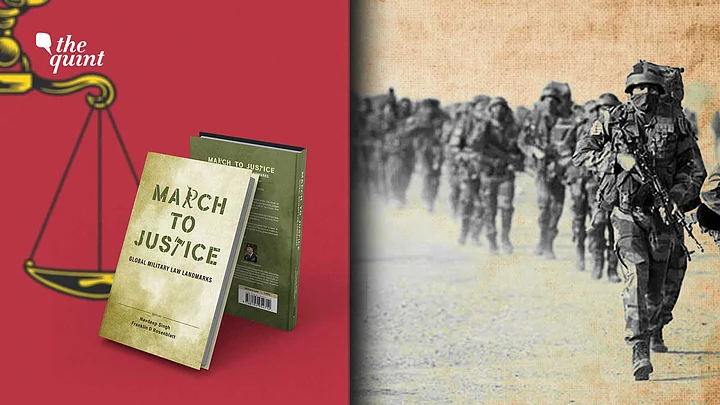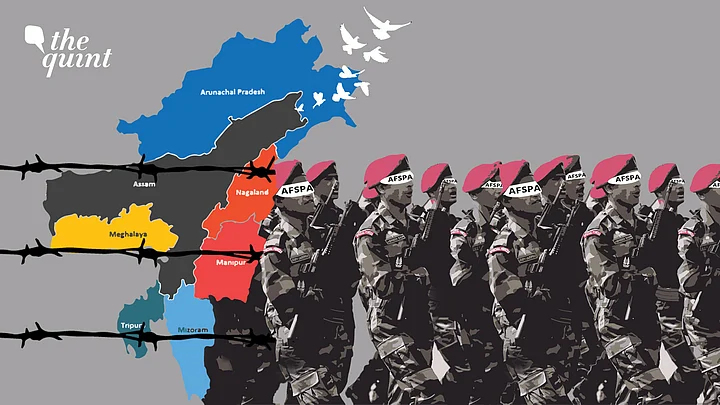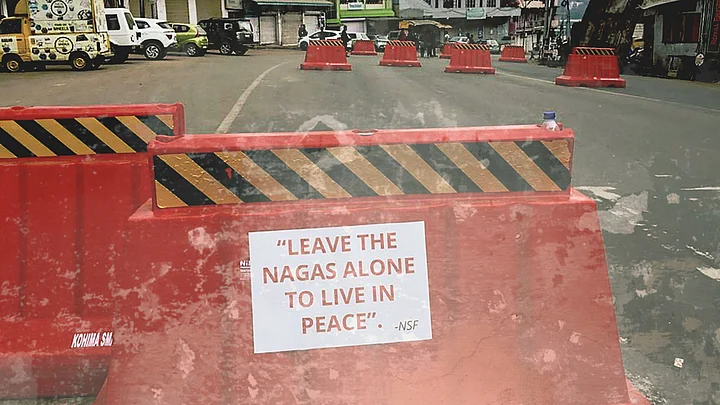To say 'March to Justice: Global Military Law Landmarks' is unique would be an understatement. It is not just unique, but also something never attempted before, to the best of my knowledge. This is a book that contains essays and commentaries by judges and jurists on landmark judgments of courts in different parts of the world that left an indelible impact on military law in those jurisdictions.
Law remains a binding force between democracies, and, by extension, between the militaries of democracies. The defining respect of any military flows from how it functions within the bounds of applicable law – both domestic and international.
That is where the contribution of such a book becomes immensely valuable to not just members of the military and senior commanders, but also to lawyers, judges and academia. The fact that it is written in non-technical and layperson terms makes it accessible to the general and casual reader too.
'Justice Can't be Sacrificed in the Name of Discipline'
The book is edited by Major Navdeep Singh, a lawyer of the Punjab & Haryana High Court, who specialises in constitutional law, service as well as military matters, and Colonel Franklin Rosenblatt, a former Judge Advocate-General Corps officer of the US Army, who now teaches in an American university and functions as a judge of the Mississippi Military Court of Appeals.
The foreword is written by Diego Garcia-Sayan, the United Nations Special Rapporteur on Independence of Judges and Lawyers, who states that the military justice system should be recognised as a full partner in administering justice within its jurisdiction alongside the ordinary civilian justice system. He calls the book an ‘extraordinary dialogue’ on the subject and says that it would turn out to be a piece of leading literature in democratic societies.
Navdeep opens the book with an overview where he emphasises, as also held by the Supreme Court and various High Courts, that justice cannot be sacrificed in the name of discipline. He points out that fairness and justice lead to better discipline. He also encourages young officers of the government dealing with the law not to get personally enmeshed in litigation by making it an ego issue but to assist the courts at arriving at justice. He also explains areas that require reform, especially the independence of military juries and that of the prosecution.
Franklin provides a brief introduction of each chapter by explaining its context and subject matter. He explains how the idea of the book germinated in various sessions and conferences around the world, where he and Navdeep were together (both of them were also participants in the conceptualisation of the Yale Draft – an improvement of the United Nations Principles on the administration of military justice, initiated at the Yale Law School). He recalls they both were always curious to learn more about how constitutional courts have performed the delicate balancing of national military prerogatives and individual rights.
Soldiers in Counter-Insurgency Operations
The aspect of the balance between the operational aspects of security forces and the human rights of citizens is dealt with in the book in great detail, and very objectively, without leaning towards any side or attempt to please.
Two chapters, titled ‘Protection of Good Faith Acts from Abuse of the Process of Law’ by Colonel Alok Shukla and ‘Remaining Faithful to the Demands of Legality in the Face of a Violent Crisis’ by Professor Shruti Bedi of the Panjab University take the readers deep into the dilemma of soldiers operating in counter-insurgency operations and how the courts have interpreted laws, including the Armed Forces Special Powers Act (AFSPA).
Prof Bedi recognises both the challenging task of soldiers deployed on internal security duties, which is not traditionally the job of the military, and the requirement of protection of human rights.
The chapters on Israel, wherein Prof Amos Guiora and Judge Maya Heller describe the division of the Israeli society in the case of a soldier, Elor Azaria, who was put to trial for shooting an already incapacitated terrorist, will also echo well in the Indian context. Maya Heller was the judge, who despite facing a backlash by nationalistic elements, stood steadfast in upholding law and convicting the soldier for manslaughter. She offers her personal reflections in her very unique chapter as to what kind of pressures the court faced because of public utterances of senior political leaders and military officers; yet, the judges were concerned only with the evidence and what was before them in the court rather than emotional outbursts of the public. Having served extensively in the counter-terrorism operational milieu, I can relate to all these four chapters.
Also in the book are chapters on judgments across the world that ensured the independence of the military justice system, such as Généreux in Canada (Rory Fowler & Afton Brooke David) and Findlay in the United Kingdom (Judge Jeff Blackett), and those that helped make positive strides, for example, Prithi Pal Singh Bedi in India (Aditya Puar) and Engel for Holland (General Jan Peter Spijk).
Lessons From Around the World
Preston Lim writes on the Martin case of the United Kingdom, which he calls progressive but not revolutionary. Professor Eugene Fidell and Dr Pascal Lévesque discuss the ‘military-nexus’ decisions of the Supreme Courts of the US and Canada in their essays.
Kiran Mohandas Menon writes on the Australian War Crimes Act and its interpretation by the High Court of Australia, while there are chapters on Turkey, Denmark, Georgia, Nepal, Colombia, Ukraine and China by Leslie Esbrook, Lars Stevnsborg, Nino Nikolaishvili, Prem Chandra Rai, Marialejandra Moreno Mantilla, Kateryna Busol and Susan Finder, respectively. There are two chapters on judgments dealing with women in the military by Aishwarya Bhati, Additional Solicitor General of India, and Colonel Kathrine K Stich, a serving US Army officer. There is a lot to learn from each other’s best practices.
The book, which now stands released internationally and is available both online and in regular bookshops, must be read to gain more knowledge on the workings of military law as interpreted by constitutional courts and to further put into motion reforms in a field that mostly remains away from the public gaze.
(Lt General (Retd) Satish Dua is a former Corps Commander in Kashmir, who retired as Chief of Integrated Defence Staff. He tweets @TheSatishDua. This is an opinion piece and the views expressed above are the author’s own. The Quint neither endorses nor is responsible for them.)
(At The Quint, we question everything. Play an active role in shaping our journalism by becoming a member today.)



